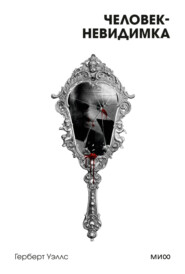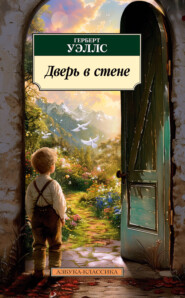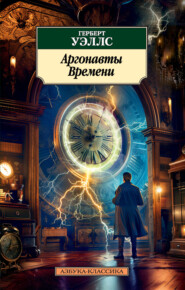По всем вопросам обращайтесь на: info@litportal.ru
(©) 2003-2024.
✖
Twelve Stories and a Dream
Настройки чтения
Размер шрифта
Высота строк
Поля
“Before you saw her?”
“I didn’t see her. When I got out from them she wasn’t anywhere to be seen.”
So he ran in search of her out of this red-lit cave, down a long grotto, seeking her, and thence he came out in a great and desolate place athwart which a swarm of will-o’-the-wisps were flying to and fro. And about him elves were dancing in derision, and the little gnomes came out of the cave after him, carrying gold in handfuls and casting it after him, shouting, “Fairy love and fairy gold! Fairy love and fairy gold!”
And when he heard these words, came a great fear that it was all over, and he lifted up his voice and called to her by her name, and suddenly set himself to run down the slope from the mouth of the cavern, through a place of thorns and briers, calling after her very loudly and often. The elves danced about him unheeded, pinching him and pricking him, and the will-o’-the-wisps circled round him and dashed into his face, and the gnomes pursued him shouting and pelting him with fairy gold. As he ran with all this strange rout about him and distracting him, suddenly he was knee-deep in a swamp, and suddenly he was amidst thick twisted roots, and he caught his foot in one and stumbled and fell…
He fell and he rolled over, and in that instant he found himself sprawling upon Aldington Knoll, all lonely under the stars.
He sat up sharply at once, he says, and found he was very stiff and cold, and his clothes were damp with dew. The first pallor of dawn and a chilly wind were coming up together. He could have believed the whole thing a strangely vivid dream until he thrust his hand into his side pocket and found it stuffed with ashes. Then he knew for certain it was fairy gold they had given him. He could feel all their pinches and pricks still, though there was never a bruise upon him. And in that manner, and so suddenly, Mr. Skelmersdale came out of Fairyland back into this world of men. Even then he fancied the thing was but the matter of a night until he returned to the shop at Aldington Corner and discovered amidst their astonishment that he had been away three weeks.
“Lor’! the trouble I ‘ad!” said Mr. Skelmersdale.
“How?”
“Explaining. I suppose you’ve never had anything like that to explain.”
“Never,” I said, and he expatiated for a time on the behaviour of this person and that. One name he avoided for a space.
“And Millie?” said I at last.
“I didn’t seem to care a bit for seeing Millie,” he said.
“I expect she seemed changed?”
“Every one was changed. Changed for good. Every one seemed big, you know, and coarse. And their voices seemed loud. Why, the sun, when it rose in the morning, fair hit me in the eye!”
“And Millie?”
“I didn’t want to see Millie.”
“And when you did?”
“I came up against her Sunday, coming out of church. ‘Where you been?’ she said, and I saw there was a row. I didn’t care if there was. I seemed to forget about her even while she was there a-talking to me. She was just nothing. I couldn’t make out whatever I ‘ad seen in ‘er ever, or what there could ‘ave been. Sometimes when she wasn’t about, I did get back a little, but never when she was there. Then it was always the other came up and blotted her out… Anyow, it didn’t break her heart.”
“Married?” I asked.
“Married ‘er cousin,” said Mr. Skelmersdale, and reflected on the pattern of the tablecloth for a space.
When he spoke again it was clear that his former sweetheart had clean vanished from his mind, and that the talk had brought back the Fairy Lady triumphant in his heart. He talked of her – soon he was letting out the oddest things, queer love secrets it would be treachery to repeat. I think, indeed, that was the queerest thing in the whole affair, to hear that neat little grocer man after his story was done, with a glass of whisky beside him and a cigar between his fingers, witnessing, with sorrow still, though now, indeed, with a time-blunted anguish, of the inappeasable hunger of the heart that presently came upon him. “I couldn’t eat,” he said, “I couldn’t sleep. I made mistakes in orders and got mixed with change. There she was day and night, drawing me and drawing me. Oh, I wanted her. Lord! how I wanted her! I was up there, most evenings I was up there on the Knoll, often even when it rained. I used to walk over the Knoll and round it and round it, calling for them to let me in. Shouting. Near blubbering I was at times. Daft I was and miserable. I kept on saying it was all a mistake. And every Sunday afternoon I went up there, wet and fine, though I knew as well as you do it wasn’t no good by day. And I’ve tried to go to sleep there.”
He stopped sharply and decided to drink some whisky.
“I’ve tried to go to sleep there,” he said, and I could swear his lips trembled. “I’ve tried to go to sleep there, often and often. And, you know, I couldn’t, sir – never. I’ve thought if I could go to sleep there, there might be something. But I’ve sat up there and laid up there, and I couldn’t – not for thinking and longing. It’s the longing… I’ve tried – ”
He blew, drank up the rest of his whisky spasmodically, stood up suddenly and buttoned his jacket, staring closely and critically at the cheap oleographs beside the mantel meanwhile. The little black notebook in which he recorded the orders of his daily round projected stiffly from his breast pocket. When all the buttons were quite done, he patted his chest and turned on me suddenly. “Well,” he said, “I must be going.”
There was something in his eyes and manner that was too difficult for him to express in words. “One gets talking,” he said at last at the door, and smiled wanly, and so vanished from my eyes. And that is the tale of Mr. Skelmersdale in Fairyland just as he told it to me.
6. THE STORY OF THE INEXPERIENCED GHOST
The scene amidst which Clayton told his last story comes back very vividly to my mind. There he sat, for the greater part of the time, in the corner of the authentic settle by the spacious open fire, and Sanderson sat beside him smoking the Broseley clay that bore his name. There was Evans, and that marvel among actors, Wish, who is also a modest man. We had all come down to the Mermaid Club that Saturday morning, except Clayton, who had slept there overnight – which indeed gave him the opening of his story. We had golfed until golfing was invisible; we had dined, and we were in that mood of tranquil kindliness when men will suffer a story. When Clayton began to tell one, we naturally supposed he was lying. It may be that indeed he was lying – of that the reader will speedily be able to judge as well as I. He began, it is true, with an air of matter-of-fact anecdote, but that we thought was only the incurable artifice of the man.
“I say!” he remarked, after a long consideration of the upward rain of sparks from the log that Sanderson had thumped, “you know I was alone here last night?”
“Except for the domestics,” said Wish.
“Who sleep in the other wing,” said Clayton. “Yes. Well – ” He pulled at his cigar for some little time as though he still hesitated about his confidence. Then he said, quite quietly, “I caught a ghost!”
“Caught a ghost, did you?” said Sanderson. “Where is it?”
And Evans, who admires Clayton immensely and has been four weeks in America, shouted, “CAUGHT a ghost, did you, Clayton? I’m glad of it! Tell us all about it right now.”
Clayton said he would in a minute, and asked him to shut the door.
He looked apologetically at me. “There’s no eavesdropping of course, but we don’t want to upset our very excellent service with any rumours of ghosts in the place. There’s too much shadow and oak panelling to trifle with that. And this, you know, wasn’t a regular ghost. I don’t think it will come again – ever.”
“You mean to say you didn’t keep it?” said Sanderson.
“I hadn’t the heart to,” said Clayton.
And Sanderson said he was surprised.
We laughed, and Clayton looked aggrieved. “I know,” he said, with the flicker of a smile, “but the fact is it really WAS a ghost, and I’m as sure of it as I am that I am talking to you now. I’m not joking. I mean what I say.”
Sanderson drew deeply at his pipe, with one reddish eye on Clayton, and then emitted a thin jet of smoke more eloquent than many words.
Clayton ignored the comment. “It is the strangest thing that has ever happened in my life. You know, I never believed in ghosts or anything of the sort, before, ever; and then, you know, I bag one in a corner; and the whole business is in my hands.”
He meditated still more profoundly, and produced and began to pierce a second cigar with a curious little stabber he affected.
“You talked to it?” asked Wish.
“For the space, probably, of an hour.”
“Chatty?” I said, joining the party of the sceptics.
“The poor devil was in trouble,” said Clayton, bowed over his cigar-end and with the very faintest note of reproof.
“Sobbing?” some one asked.
Clayton heaved a realistic sigh at the memory. “Good Lord!” he said; “yes.” And then, “Poor fellow! yes.”
“Where did you strike it?” asked Evans, in his best American accent.
“I never realised,” said Clayton, ignoring him, “the poor sort of thing a ghost might be,” and he hung us up again for a time, while he sought for matches in his pocket and lit and warmed to his cigar.
“I took an advantage,” he reflected at last.

















